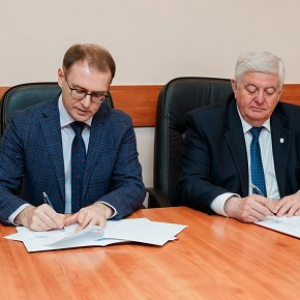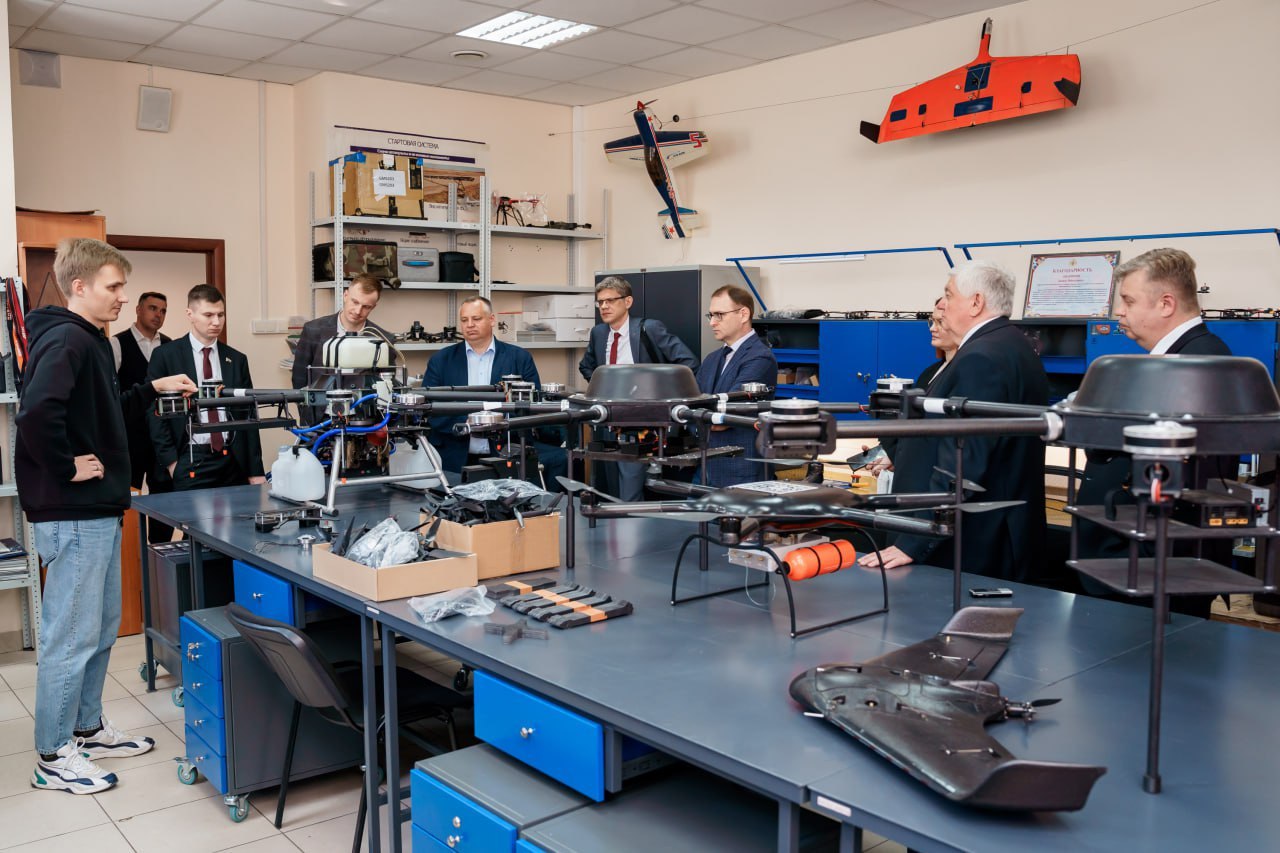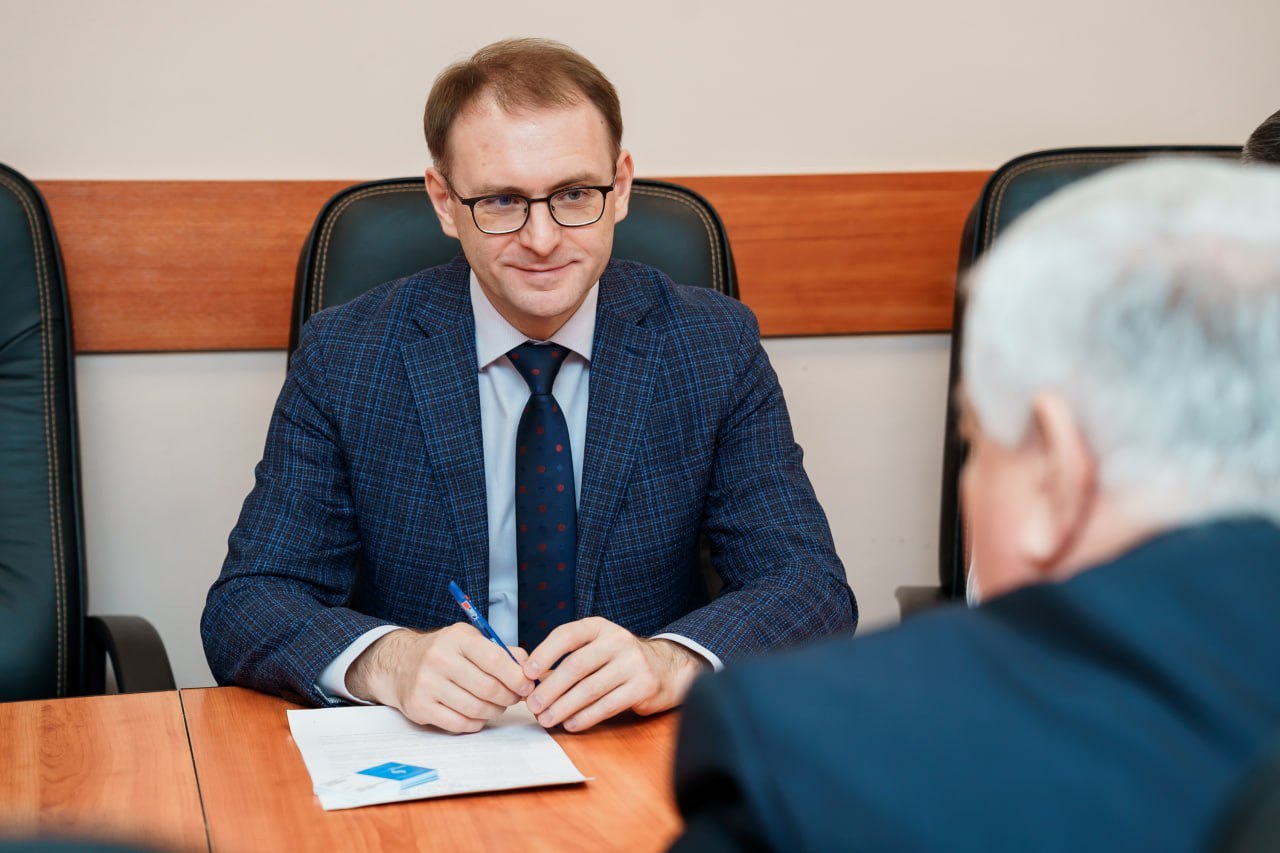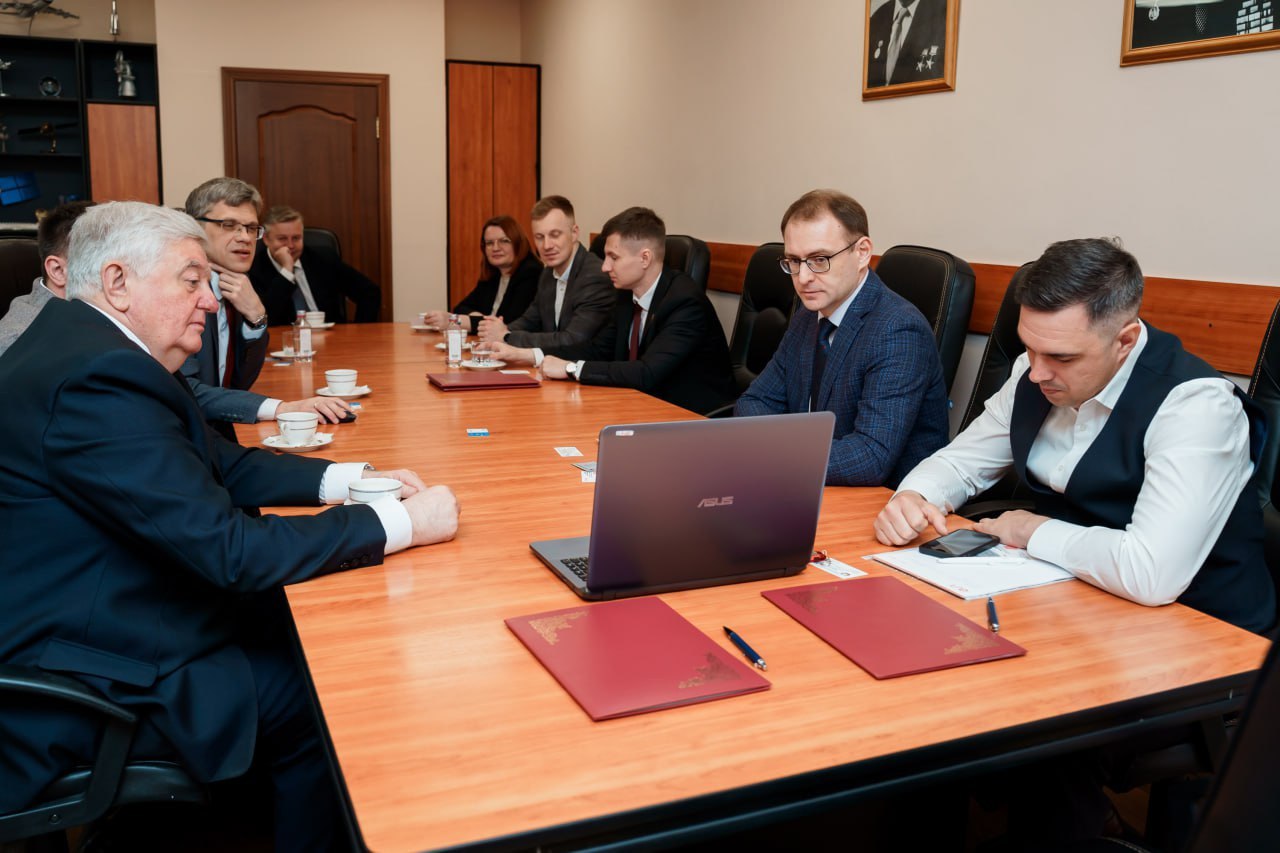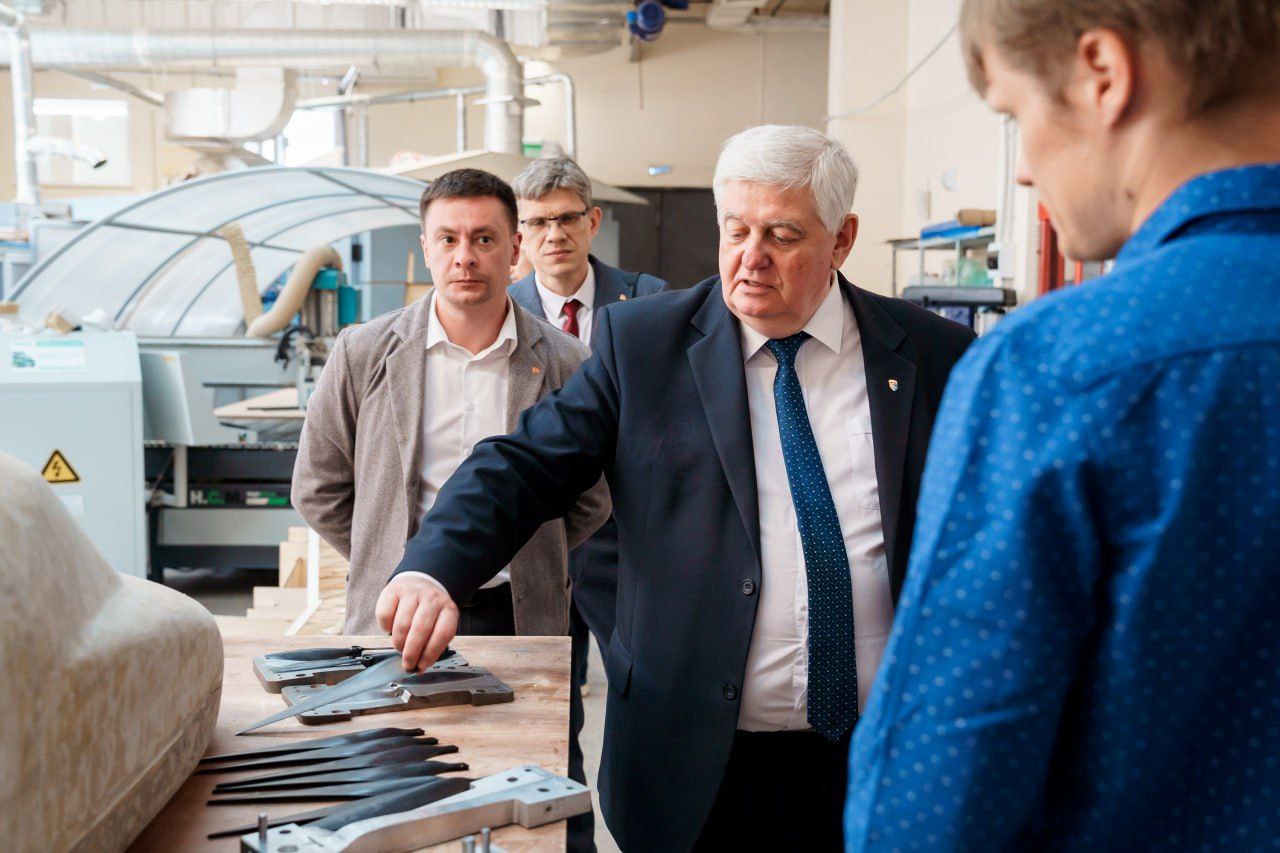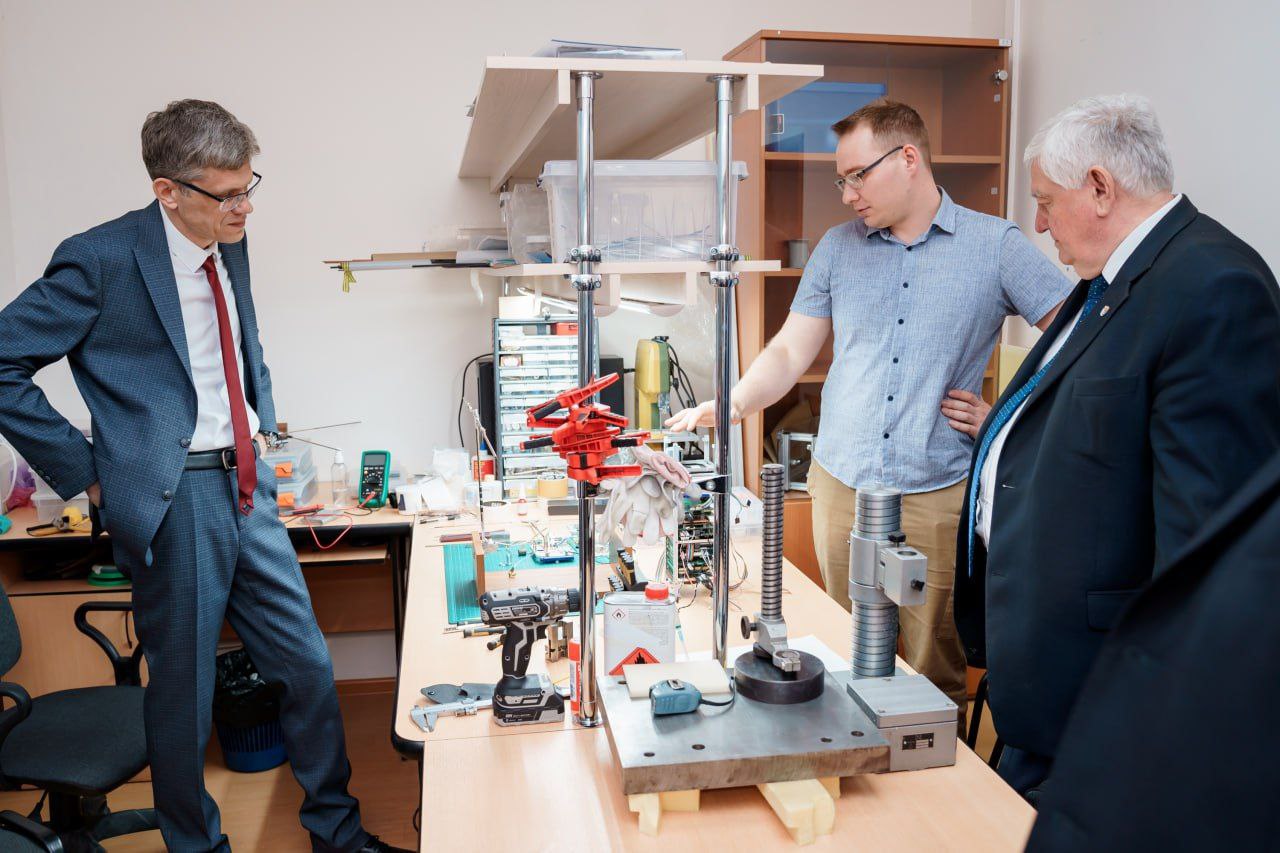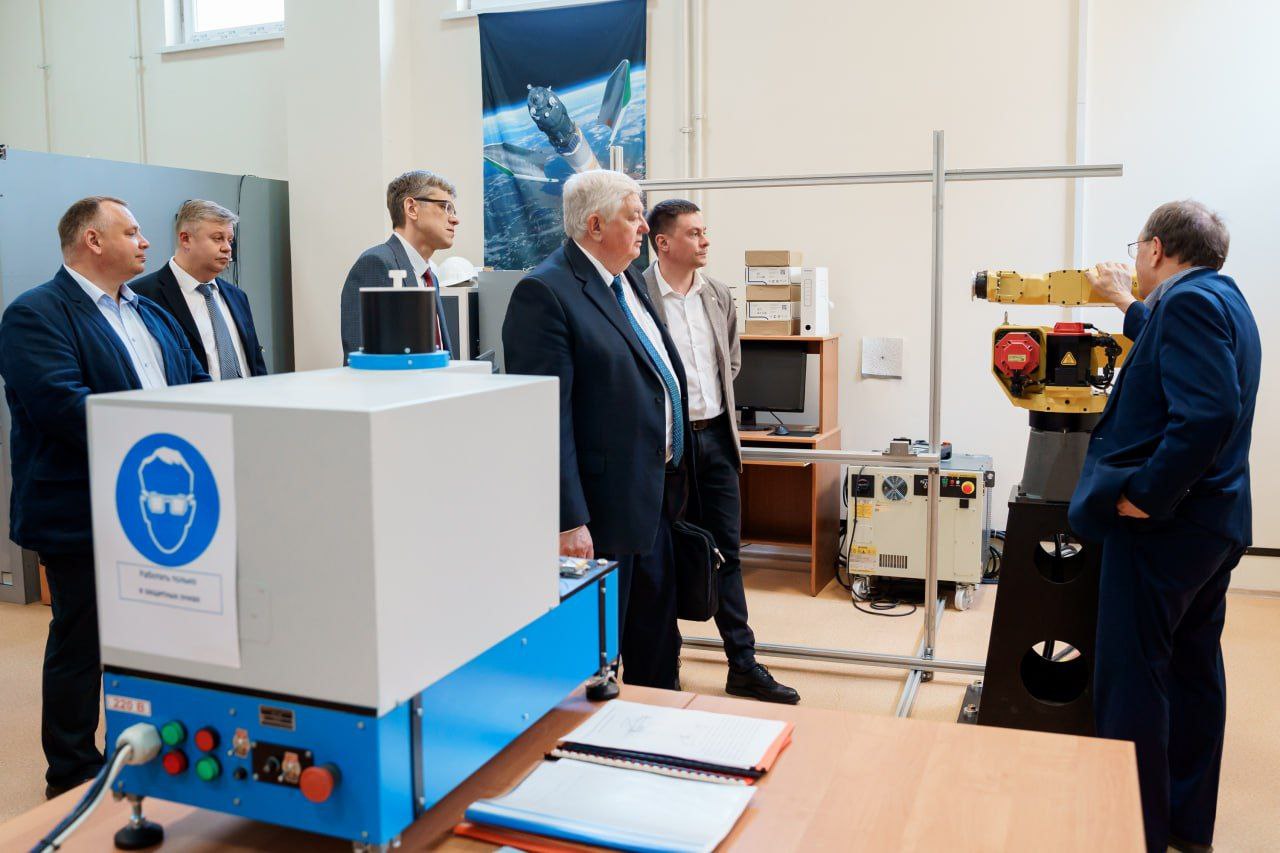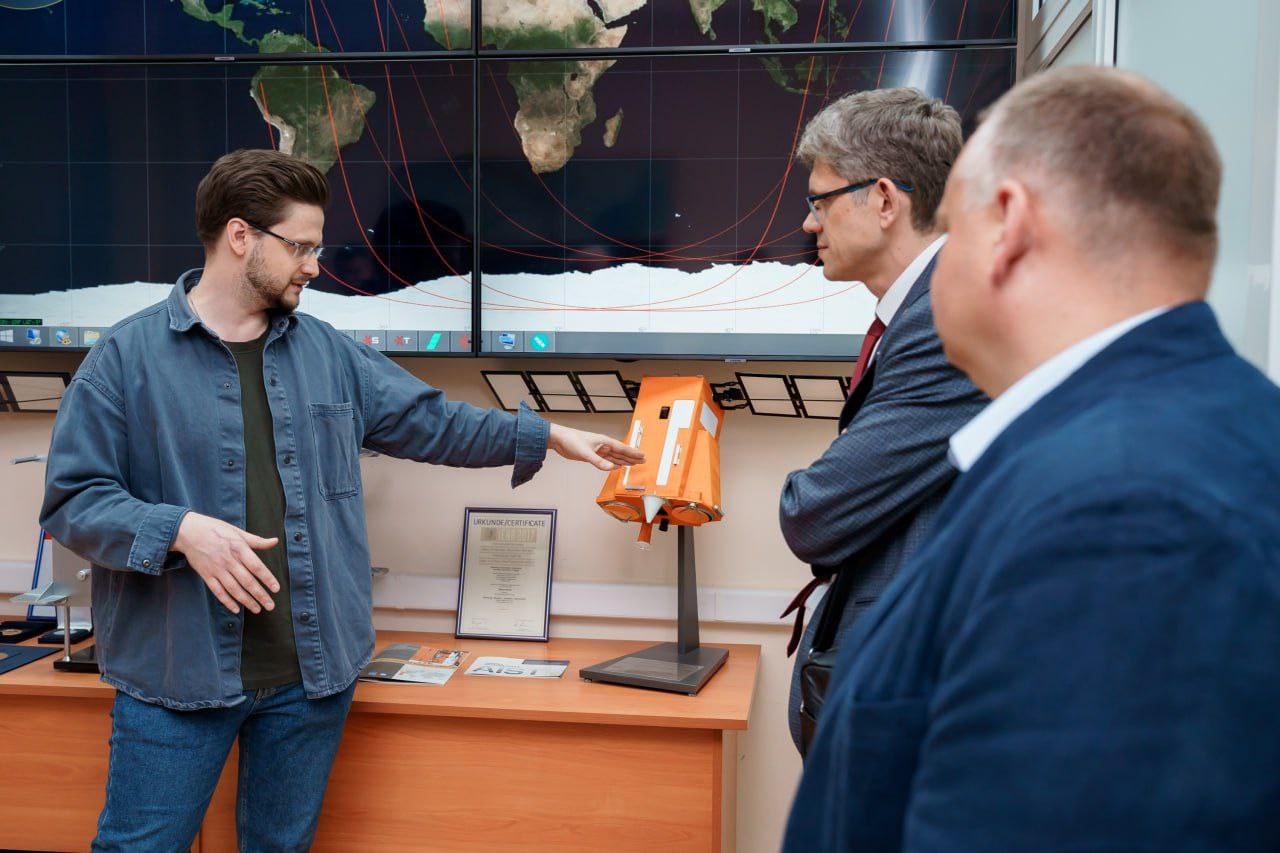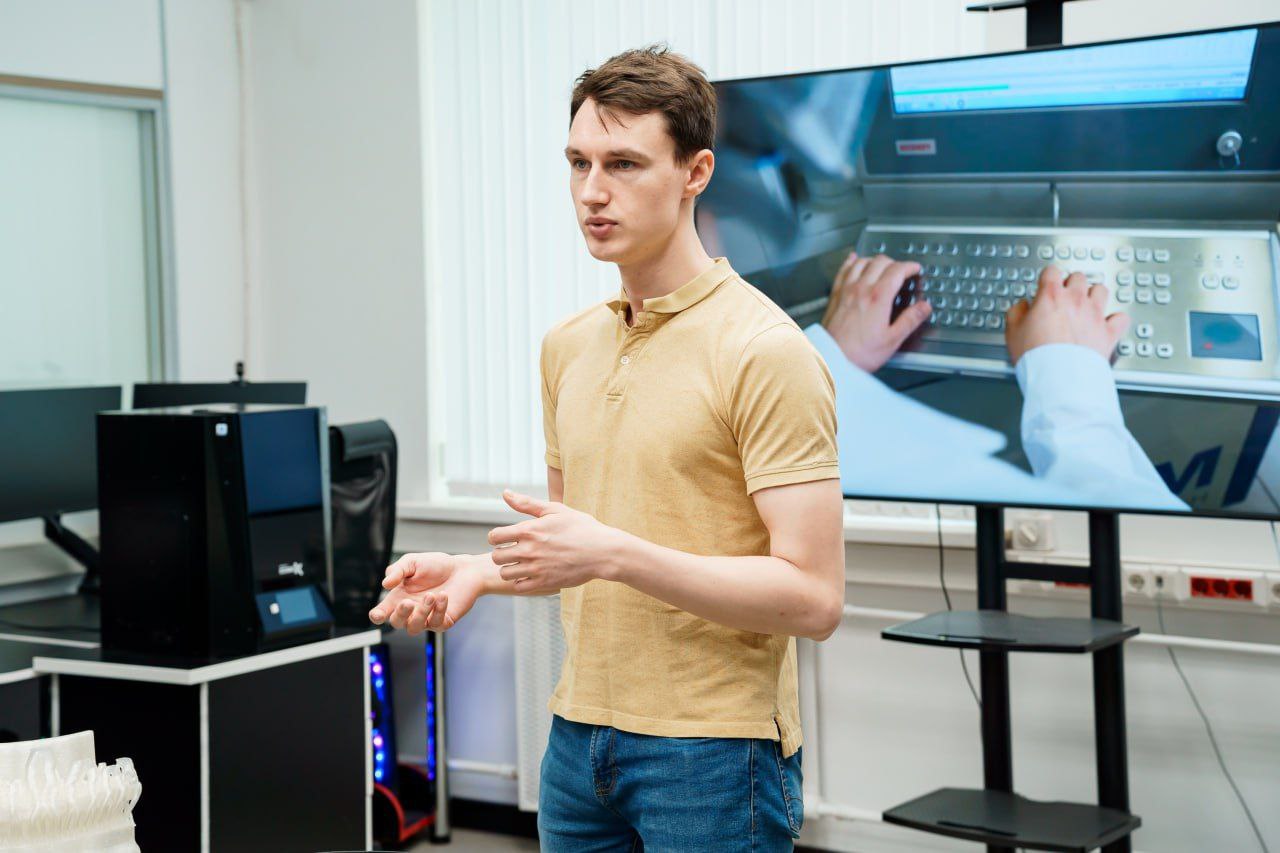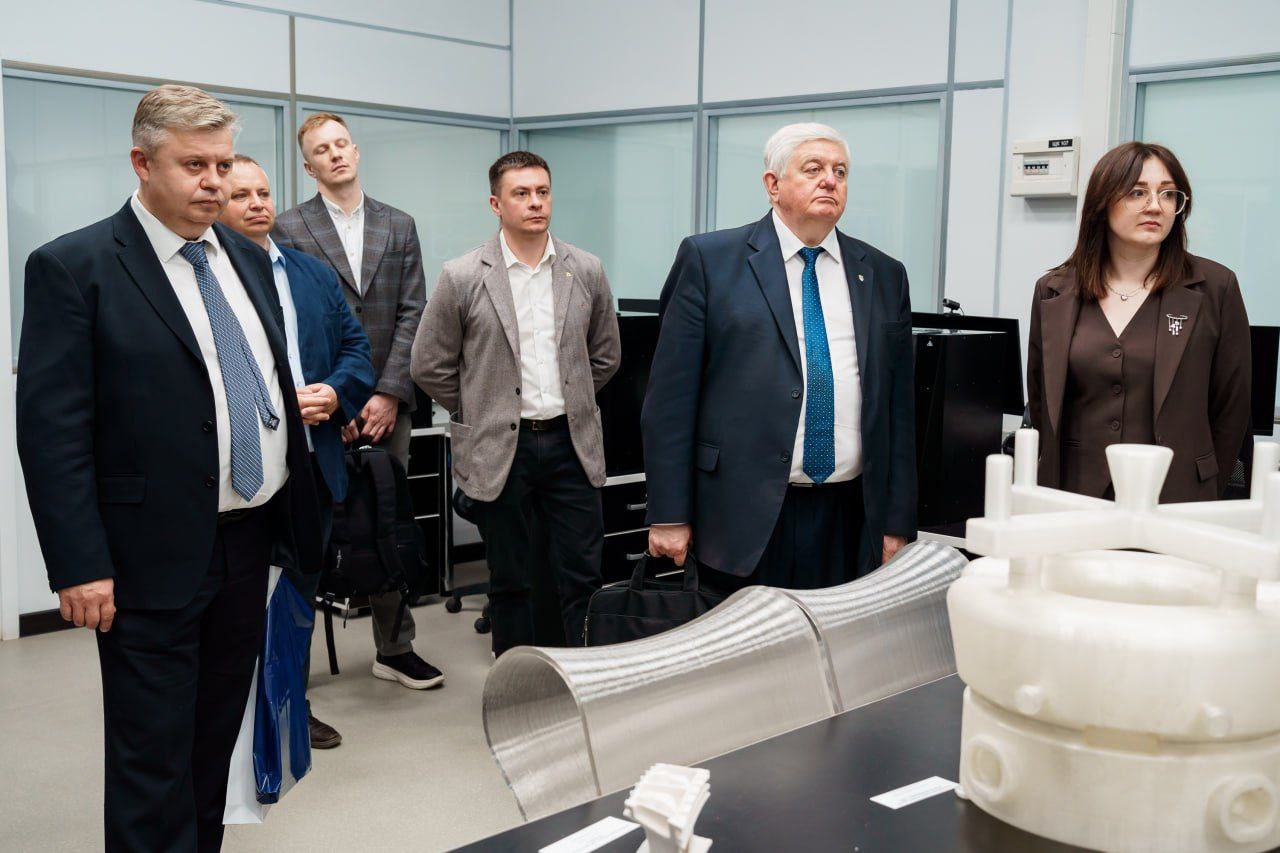This week, a representative delegation from the Republic of Belarus became the guest of Samara National Research University. It includes a group of scientists from the Belarusian State Technological University, led by Igor Voitov, Rector of BSTU, as well as representatives of the Belarusian companies Peleng and TechComSoft, which develop and manufacture high-tech products for space and aviation.
Vladimir Bogatyrev, Rector of Samara University, told the guests about the history and structure of the University, as well as key areas in its educational activities and scientific research.
According to Professor Igor Voitov, the Belarusian State Technological University celebrates its 95th anniversary this year. Today, training at BSTU is conducted in 38 specialties; taking into account the programs of further vocational education, about 30 thousand people study at the University. The basic areas of scientific research and training are forestry, forest engineering and materials science, chemical technologies, computer science, and media communications. Our partners include leading Belarusian enterprises, primarily in such industries as oil refining and petrochemistry, production of mineral fertilizers, wood processing, and the pulp and paper industry. Graduates of the Faculty of Engineering and Economics of BSTU hold key positions in the leadership of the Republic of Belarus.
Representatives of Belarusian enterprises also spoke about their developments. In particular, Peleng OJSC is a well-known developer of optical equipment and complexes in the post-Soviet space. Dmitry Sikorsky, Deputy Director General for Scientific and Technical Development, presented optical systems that successfully operate on Russian Earth remote sensing spacecraft.
Vladimir Trizna, Head of the Aviation Technology Development Department at TechnComSoft CJSC, spoke about the serial unmanned aerial vehicles (UAVs) produced by the company, as well as the development of promising commercial drones with take-off weights of 2 and 5.7 tons.
In a lively dialogue, the directions and areas of research in which the interests of the Russian and Belarusian sides overlap were identified. One of the priorities of mutually beneficial cooperation may be the development and application of unmanned aerial systems (UAS) and remote monitoring systems for natural complexes. In these areas, Samara University has extensive expertise in both UAVs and hyperspectral equipment, space photography, image processing, gas chromatography, and artificial intelligence.
"Everything related to unmanned aerial vehicles — including the design of aircraft, engines, control systems, radio electronics, and software — are all key areas of our scientific and educational activities," Vladimir Bogatyrev emphasized.
Rector of Samara University told the guests about the developments of the Artificial Intelligence (AI) Center in the interests of the industrial partner, the Transport of the Future company. These are mainframes for controlling UAVs, systems for ensuring the safety of UAV movement in the region, systems for monitoring the processes of assembling UAVs, as well as preparing them for departure, where AI controls the correctness of human actions.
"We have ambitious plans for the future to develop new technologies related to the global trend of creating Dark factories, that is, factories where only robots work and there are no people," Vladimir Bogatyrev said.
In turn, Igor Voitov said that BSTU had also started to deal with unmanned subjects. In addition, the university manages a large forestry with a total area of about 40 thousand hectares, where the developments of Samara scientists will be used.
Image processing technologies using artificial intelligence, developed at Samara University, will help improve Peleng's products, and TechComSoft is interested in a mutual exchange of experience in creating UAS.
Vladimir Bogatyrev and Igor Voitov discussed the prospects of cooperation between universities in the educational field, the possibility of developing online educational programs. Then the rectors signed a cooperation agreement between Samara University and Belarusian State Technical University in the scientific and educational fields.
Next, the Belarusian delegation visited the interactive educational spaces of the Advanced Aerospace Engineering School (AAES). Here they were shown how virtual and augmented reality (VR and AR) technologies help in studying the assembly processes of aerospace equipment, and were shown smeltable and burnt foundry models created by AAES students using additive technologies. The Belarusian colleagues attended a practical lesson at the interactive robotics and mechatronics complex.
The guests learnt about the main developments of the Department of Geoinformatics and Information Security in the field of geoinformation systems, as well as services based on the use of remote sensing data in such areas as urban planning, natural resource development and agriculture, cartography, transport, monitoring of natural disasters, and others.
The Belarusian delegation talked with great interest with the staff of the Center for Unmanned Systems of Samara University. Various models of UAVs, which are being developed and assembled at the university, were demonstrated here. The guests were also informed about the training of specialists in the field of civil aviation by a certified aviation training center. The delegation was particularly interested in one of the university's top developments, a portable gas chromatograph mounted on a UAV that detects air composition almost instantly.
Igor Belokonov, Head of the Interuniversity Department of Space Research, presented nanosatellites created by his team, as well as a test center for these spacecraft. He recalled that the SamSat-Ionosphere small spacecraft, created by the department's staff, celebrated six months of successful work in low-Earth orbit on May 5, and now the next spacecraft is being prepared for space launch.
During a meeting with the President of Samara University, the guests discussed the prospects of cooperation in the field of computer optics and artificial intelligence with Academician of the Russian Academy of Sciences Viktor Soifer.
Today, on May 7, the Belarusian delegation is being familiarized with the production of drones at the Togliatti enterprise "Transport of the Future."
